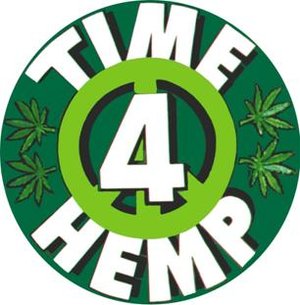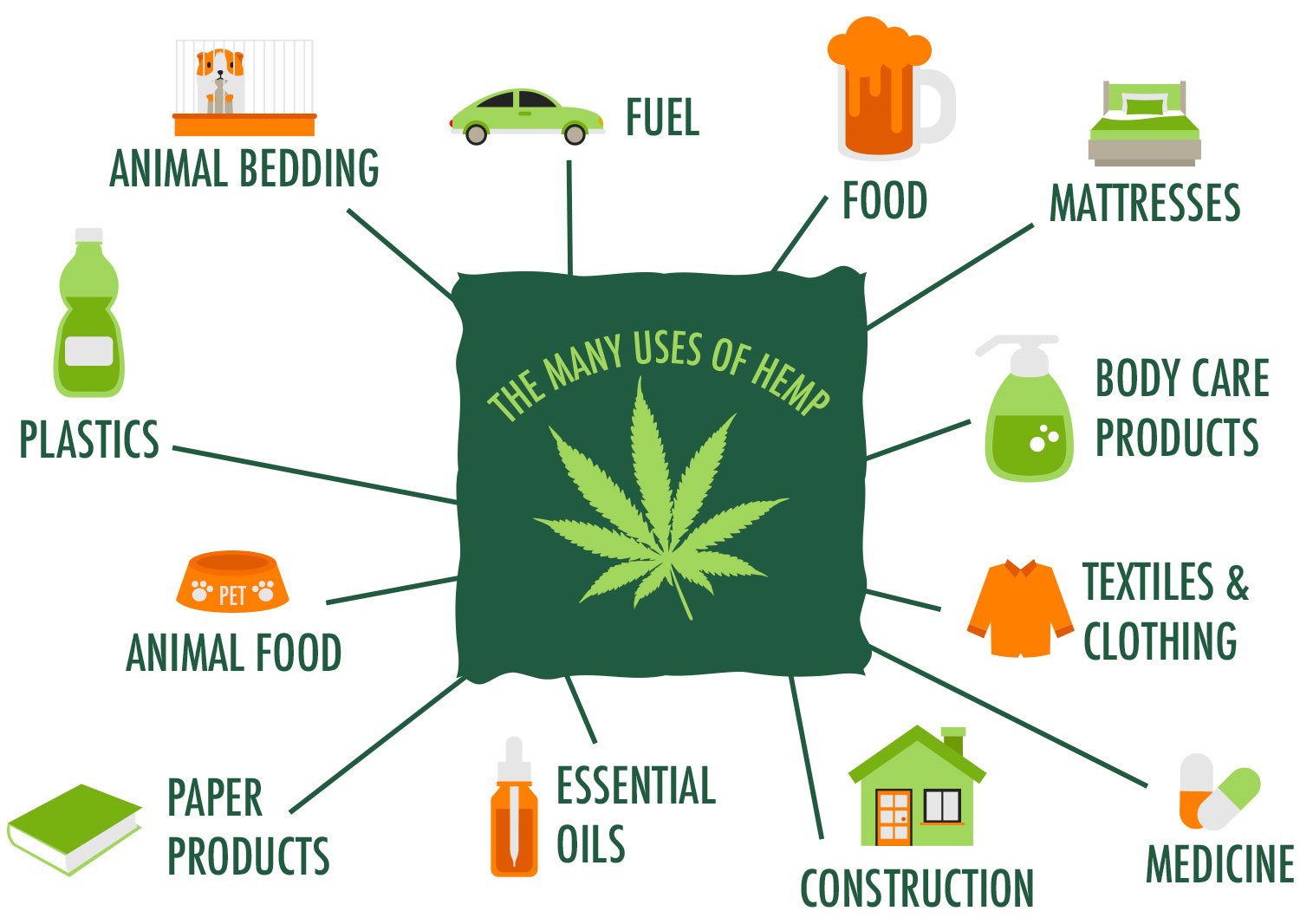What Products Can Hemp Make?
Hemp can be used to make paper, fiber, fuel, food AND PLASTIC.
Hugh Downs explains the possibilities of hemp.
If you want to have a GREEN ECONOMY - use hemp!
Written by Casper Leitch
Cannabis is a major cash crop, this is common knowledge. Many people are still unaware that the sister strain of cannabis (ie. hemp) is also a big money maker for everyone who works with it. From the farmer who plants the hemp seed to the store owner who sells the many different hemp products, everyone becomes part of the growing hemp economy.
Hemp can be used to make: different grades of paper; different types of fibers for cloth; fuel to run cars, trucks, buses and planes with; oils to cook with and use in paints; and in making plastic.
Plastic made from hemp is biodegradable.
Plastics alone are a big business. Look around and count the items within arm’s reach that are made from plastic. The substance has made life infinitely more convenient; people carry groceries in it, drink water from it, wrap foods in it, and even use it to build devices to access online blog posts about plastics. Its presence is as ubiquitous as its potential uses are endless. We need to use hemp plastic.
But the problem with plastics is that they never go away, ever. There is no global solution to the disposal of single use plastics such as grocery bags and water bottles. One trillion single-use plastic bags are consumed annually around the globe. One million bags are being used every minute. Each of these bags is used only for a matter of minutes, but take up to 1,000 years to degrade.
The consequences of using plastic.
Every square mile of ocean, which takes up 70% of the planet, contains 46,000 pieces of plastic trash in various stages of decomposition, with the majority broken down into fragments which are consumed by sea life that is in turn consumed by humans, introducing toxic Bisphenol-A (BPA) into human diets, which may be the cause of fertility problems among women in countries reliant on the ocean for food.
The consequences of all that plastic are steep and expensive. Nearly 50 percent of life, and therefore the entire food chain, exists the world’s oceans. All around the globe, beaches are buried in layers of plastic garbage, sometimes 5-10 feet deep. Scientist are at a loss as to how to clean up the damage already done, but agree that continued contribution to the plastic waste problem must stop. Plastic made from hemp biodegrades in just a few short years.
The irony is that while solutions to the mounting problem of plastic garbage already exist, they are either dismissed as inconvenient (plastic bag bans or taxes, carrying reusable water bottles) or the means of their production are made illegal.
Hemp makes an excellent alternative to plastics but is illegal.
Hemp provides an excellent alternative to plastics yet remains illegal (and therefore cost prohibitive) due to its association with the drug marijuana. But there is no good reason for this. Even in the absence of international treaties or regulations requiring the end of plastic waste, taking concrete steps to implement hemp substitutions still make sense.
Currently, growing hemp in the United States is prohibited, but that may quickly change. Hemp reform has already made significant progress in the US Congress, and so a thriving domestic hemp economy may be just around the corner. And that will do more than just replace plastic bags.
Use Hemp And Save The Earth!
Hemp plastics are destined to create an economic boom, slow the rate of plastic pollution in our oceans and air (they are flame retardant) and could be used on the exact same machinery already being used to create plastic goods like bottles and bags. Hemp plastics are not only 100% biodegradable, meaning they do not contribute to permanent pollution, but they are also 2.5 times stronger than standard use plastics.
Thus, a rapid switch can be made from a weak, disposable commodity which remains in a polluting form for thousands of years to a strong, organic, biodegradable alternative. And all that's holding back a better future is bad public policy.
Below is a FREE TO DOWNLOAD marijuana music MP3 by Red Dirt.
The Pot Song.
We've used cannabis for tens of thousands of years to make textiles, paper, medicine and much more.


